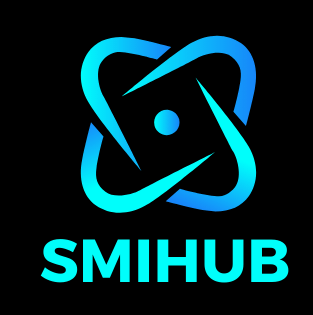Artificial Intelligence (AI) is revolutionizing various industries, and digital marketing is no exception. In today’s fast-paced digital world, businesses are leveraging AI to enhance their marketing strategies, improve customer experiences, and increase their overall efficiency. This article explores the role of AI in digital marketing, highlighting its benefits, applications, and the future of this dynamic field.
As AI technology continues to evolve, its impact on digital marketing will only become more profound. Businesses that embrace AI and stay ahead of the trends will be well-positioned to thrive in the competitive digital landscape. For those interested in diving deeper into this exciting field, a digital marketing course in London can provide valuable insights and hands-on experience with the latest AI-driven tools and techniques.
Understanding Artificial Intelligence in Digital Marketing
AI refers to the simulation of human intelligence in machines that are programmed to think and learn. In digital marketing, AI technologies enable marketers to analyze data, predict consumer behavior, and automate tasks that traditionally required human intervention.
The Role of AI in Enhancing Marketing Strategies
AI-driven tools and techniques are transforming how businesses approach marketing. By utilizing AI, companies can gain deeper insights into their audience, create more personalized experiences, and optimize their campaigns for better results.
Benefits of AI in Digital Marketing
- Data Analysis and Insights: AI can process vast amounts of data quickly and accurately, providing marketers with valuable insights into customer behavior and preferences. This enables more informed decision-making and strategy development.
- Personalization: AI allows for highly personalized marketing by analyzing individual customer data and tailoring content and offers to meet their specific needs and interests.
- Efficiency and Automation: AI automates repetitive tasks such as email marketing, social media posting, and ad management, freeing up marketers to focus on creative and strategic activities.
- Predictive Analytics: AI-powered predictive analytics can forecast trends and consumer behavior, helping marketers to anticipate needs and adjust their strategies accordingly.
Applications of AI in Digital Marketing
The integration of AI in digital marketing spans various applications, each contributing to more effective and efficient marketing practices.
AI in Content Creation
AI tools can generate content ideas, write articles, and even produce videos. For instance, natural language processing (NLP) algorithms can create blog posts and social media updates, while AI-driven video editing software can produce engaging visual content.
Chatbots and Customer Service
AI-powered chatbots provide instant customer support and engage with users in real-time. These chatbots can answer frequently asked questions, guide users through the buying process, and even handle transactions, enhancing customer satisfaction and reducing response times.
Personalized Marketing Campaigns
AI enables the creation of personalized marketing campaigns by analyzing customer data and behavior patterns. Marketers can segment their audience more effectively and deliver targeted content, offers, and recommendations that resonate with individual consumers.
Predictive Analysis and Consumer Insights
Predictive analytics uses AI to analyze historical data and predict future outcomes. This helps marketers identify trends, optimize their strategies, and make data-driven decisions. For example, AI can predict which products a customer is likely to purchase next, allowing for more accurate inventory management and personalized marketing.
Programmatic Advertising
Programmatic advertising leverages AI to automate the buying and selling of online ads. AI algorithms analyze user data to determine the most relevant ads to display, optimizing ad placements in real-time for maximum effectiveness and ROI.
SEO and Content Optimization
AI tools assist in search engine optimization (SEO) by analyzing search patterns and suggesting keywords that can improve a website’s ranking. Additionally, AI can optimize content for readability and engagement, ensuring it meets the needs of both users and search engines.
The Future of AI in Digital Marketing
As AI technology continues to advance, its impact on digital marketing will only grow. Here are some trends to watch for in the future:
Enhanced Personalization
AI will enable even more sophisticated personalization techniques, providing consumers with hyper-targeted content and experiences. This could include personalized video messages, dynamic website content, and real-time product recommendations based on AI-driven insights.
Improved Customer Insights
AI will offer deeper and more accurate customer insights, allowing marketers to understand their audience on a granular level. This will lead to more effective segmentation and targeting, resulting in higher engagement and conversion rates.
Voice and Visual Search
The rise of voice-activated devices and visual search technologies will change how consumers search for information and products online. AI will play a crucial role in optimizing content for these new search methods, ensuring businesses remain visible and competitive.
Ethical AI and Data Privacy
As AI becomes more integrated into digital marketing, ethical considerations and data privacy will become increasingly important. Marketers will need to balance the benefits of AI with the need to protect consumer data and ensure transparency in how AI-driven insights are used.
Conclusion
The use of artificial intelligence in digital marketing is transforming the industry, offering numerous benefits and applications that enhance marketing strategies and improve customer experiences. From personalized campaigns and predictive analytics to AI-driven content creation and programmatic advertising, AI is enabling marketers to work smarter and more efficiently.


















Leave a Reply